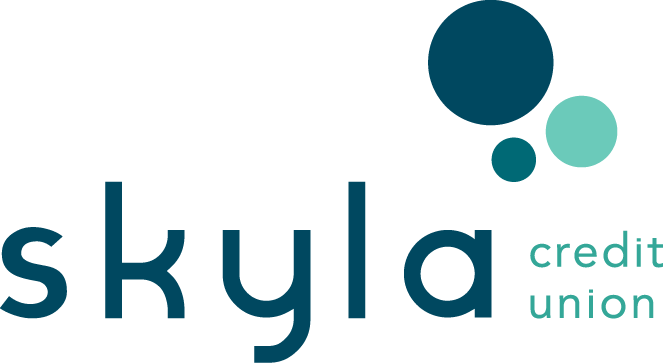How to Choose the Best Savings Account

Did you know there's more than one type of savings account? Yep! There are quite a few out there so it can be tricky to determine where to park your money, especially if you don't know what you’re saving for.
To start, do you have a specific purpose or have any savings goals you want to achieve? This can include:
- Having financial security for yourself and / or family
- Building an emergency savings fund
- Saving for retirement
- Making a BIG (or small) purchase
- Planning a vacation

Everyone's goals are different and sometimes a regular ol' savings account doesn't cut the mustard for their saving needs. This is why we'll review the savings account types, outline some pros and cons of each type, and more to help you determine which may be right for you.
Psst... I'll also throw in some budgeting tips and our savings calculator so you can get on track and see what your return in savings could look like!
take a quick look at what we'll cover
 saving account types
saving account types
Regular Savings Account
A regular savings account is one of the most widely used types of saving accounts available. It’s a great option for people who want to regularly save money over time, with zero to minimal fees and few restrictions. Psst… not all financial institutions charge fees on savings accounts, they just require a minimum balance to keep the account open. At Skyla, we ask members to keep $5 (the minimum opening deposit) in the account.
Here are some quick pros and cons for having a savings account
PROS
- Easy to open an account. Like other financial accounts, you can open an account online.
- A secure place to keep your funds. Whether you have an account at a bank or credit union, account holders' funds are insured up to $250,000 by the Federal Deposit Insurance Corporation (FDIC) for bank accounts or the National Credit Union Administration (NCUA)
- Place to store emergency funds. Having a traditional savings account could be a good start to building savings goals like an emergency fund.
- Limited or no penalty fees for transactions. Unlike a Certificate of Deposit account or an IRA, you can withdraw or transfer funds from the account without there being a fee. Psst… not all regular savings accounts are the same, there may be a fee after a certain number of transactions within the month. Contact your financial institution to make sure you won’t be charged.
Cons
- Not many special features or tax benefits. Unlike other types of saving accounts, such as high-interest savings accounts or Roth IRA accounts, regular savings accounts do not offer many special features or tax benefits.
- Lower interest rates. Regular savings accounts typically offer lower interest rates than alternatives like a high yield checking, Certificate of Deposit, or money market accounts.
- Might have higher minimum balance requirements. Depending on the financial institution, a regular savings account could carry additional fees if certain conditions aren't met (like a minimum balance).
HIGH-YIELD SAVINGS ACCOUNT
A high-yield savings account is a type of savings account that offers a higher interest rate than traditional savings accounts, making it an ideal option for those looking to grow their savings at a faster rate.
Here’s what you can expect with this type of savings account.
Pros
- Earn more interest in savings over time. Let’s say you’ve invested $2,000 in a high-yield savings account earning 4.50% APY Annual Percentage Yield is a financial term used to describe the rate of return on regular savings accounts and traditional savings accounts. This metric is typically expressed as a percentage you’d save earn an extra $92 in the first year just by keeping your money in a high-yield account.
- Easy access. Unlike a Certificate of Deposit or IRA, high-yield savings accounts can be accessed at any period of time so you can easily withdraw your money as you need it.
- Minimum additional fees. Be sure to check with your institution to know what all fees are since there may not be a minimum balance requirement or monthly fees for this type of account.
- Low risk. Depending on the financial institution, deposits of up to $250,000 can be covered by insurance from either the FDIC or NCUA.
Cons
- Interest rates can change. This type of account has variable interest rates, meaning it’s not the same or can change at any time.
- May not be best to have long-term. Inflation rates could outpace the interest you earn on your savings, so it's wiser to invest your money rather than let it sit in a savings account.
- Account isn’t offered at every financial institution. High-Yield accounts are more likely offered through online financial institutions. If you prefer a physical location, you’ll find other saving product solutions
- Don’t offer the benefits of a regular bank account. Unlike some savings accounts, you typically can’t access your funds using a debit card or writing a check.
Certificate of Deposit Account (CD)
A CD is a type of savings account that offers a higher interest rate than regular savings accounts. They work by having you deposit a certain amount of money (typically $500 - $1,000) into the account for a set period of time; after which, you can either withdraw your money without penalty or renew your CD for another fixed duration.
Pros
- CDs are safe when purchased through a NCUA or FDIC insured credit union or bank.
- Guaranteed returns. When you invest your money for a predetermined period of time, you're guaranteed to earn interest on the money that you have deposited, ensuring a predictable return on your initial investment.
Cons
- Have to wait to use to access funds. With CDs, the requirement for many institutions is that you must wait until your funds mature before you can access it, or pay a fee to access the money before your term is up.
Money Market Account
A money market account, or MMA, is a type of savings account that's interest-bearing, meaning you’ll earn higher interest on your savings than a regular savings account, but typically not as much as you would with a CD. This means interest is paid to your account. A money market combines the benefits of both savings and checking accounts where you can earn interest, have check writing privileges, and can use a debit card to access your funds.
However, money markets are typically subject to certain withdrawal limits each month - typically around six withdrawals. Although money market accounts are a less common type of bank account compared to traditional checking and savings accounts, they can be a powerful tool for managing your money, especially if you value flexibility and earning competitive interest rates.
Pros
- You can access your money often times out of the month. Unlike CD accounts where you're limited to accessing your money until it matures.
- Offer stability.
- By maintaining an established interest rate that does not fluctuate unpredictably meaning you know exactly how much your money will grow over time.
Cons
- High minimum deposit or balance requirement. This may be higher than what's required for a checking or regular savings account depending on the financial institution. Money market accounts often come with minimum balance requirements, or limits on the amount of money that can be deposited at one time, which may not work for people who want to save up a substantial sum of money.
- Interest rates won't stay the same. Interest rates for an money market may vary depending on the overall market's interest rates. This can mean you'll earn less interest. Psst... interest rates can rise as well but you can't predict what may happen with market rates.
Want to learn more about money markets? I've outlines everything you should know about this account type here:
TRADITIONAL INDIVIDUAL RETIREMENT ACCOUNT (IRA)
A Traditional IRA is a special type of savings account designed to help individuals save for retirement offering certain tax benefits to its account holders.
Pros
- Many traditional IRA accounts allow users to either make contributions directly from their income before taxes or deduct their contributions on their annual tax returns.
- Savings in the account can grow tax-free. Unlike other types of savings accounts, which are subject to taxation on interest earnings, funds in a traditional IRA account generally grow tax-free.
- The peace of mind that comes from knowing you are preparing for the future.
Cons
- Penalties and fees. With traditional IRA accounts, you may be subject to penalties for early withdrawal of your funds. Psst… IRA accounts tend to have higher fees than a regular savings, CD, or money market.
- May not be accessible until you are at least 59 years old.
- Requirements and restrictions. Traditional IRAs typically have high minimum balance requirements and come with various restrictions on how funds can be withdrawn and invested.
If you're wondering about saving for retirement and are not sure about how much you should put aside for retirement or wondering if it's too late to save for retirement, I have just the thing for you.
Roth IRA Account
With a Roth IRA account, you contribute after-tax dollars, and your money grows tax-free, meaning that you will not be taxed on any gains when you withdraw the funds at a later date. Additionally, you can make tax- and penalty-free withdrawals of your contributions after reaching the age of 59.5.
PROS
- Roth contributions are made on an after-tax basis. This means that they are not tax deductible and the withdrawals are completely tax-free and will not impact an individual's taxable income in any way.
- Roth IRAs allows individuals to save for retirement without worrying about paying taxes on their earnings.
- Roth IRA's aren't based on age so there aren't restrictions on when you can begin saving in a Roth IRA (However you are restricted on when you can withdraw).
CONS
- Must be 59.5 to withdraw funds
- Taxed contributions are not tax-deductible
- Roth IRA accounts typically have higher contribution caps than other types of savings accounts, making it less accessible to individuals with lower incomes.
- May need to meet requirements. Many Roth IRA accounts require account holders to be a in a specific tax bracket during retirement.
Coverdell Education Savings Account (ESA)
A Coverdell Education Savings Account, or ESA, is a special type of savings account that is designed to help parents and guardians save money for the educational expenses of children and young adults.
PROS
- Tax-free contributions. This allows you to contribute funds tax-free, making it an attractive option for those who want to save for their children's education but are concerned about taxes eating into their earnings.
- More flexibility than other savings accounts. Coverdell ESAs offer much greater flexibility than many other types of savings accounts, since the funds can be used to pay tuition fees at a variety of different educational institutions.
CONS
- Eligibility requirements. There are often income limits that determine who is eligible to open such an account.
- There are restrictions. Once the cash is withdrawn from an ESA for educational purposes, it cannot be put back in.
SPECIAL SAVINGS ACCOUNTS
Financial institutions understand there are account holders looking to achieve specific savings goals so they offer a variety of personalized savings accounts in addition to conventional options like money market, certificate of deposit, and IRA accounts.
These types of accounts are geared towards specific needs like education or saving for the holidays.
|
Overall, these types of special accounts can help customers to save up for specific goals without the risk of their funds getting tied up in a longer-term investment. Make sure you do your due diligence to learn what other financial institutions offer.
Whether you are looking for higher returns or prefer greater access to your funds, there are plenty of options available to help you meet your saving needs.
Before opening a savings account, make sure you research the financial institutions savings options. Look at their interest rates, minimum opening deposit required and their fees for their savings products that way you know what you would be getting into when having your savings account.
 which type of savings account is best?
which type of savings account is best?
Phew - that was a lot of information on savings accounts! Now that you know about the different types of savings accounts, which one do you think is best for you?
Here's a comparison chart with questions that align with the savings account that may make sense for you:
Of course, every person's situation is different, so the best option for you will depend on factors such as your risk tolerance and personal preferences.
ready to get your savings going?
Ultimately, the most important thing is that you make a conscious choice about how much money you want to save and what kind of account is best suited to your needs. With the right planning and commitment, it is possible to build up a healthy nest egg over time, regardless of what strategy you choose. So don't hesitate – start saving today!
need help saving for a goal? 
Saving for a goal requires you to start thinking about your goals, examining your expenses, making a timeline and more - which isn't always easy-peasy. That's why I created some to-do's so you can get the ball rolling – but don't worry, I'll walk you through it all!
Don't worry, I'll walk you through it all. 
Any of the wonderful staff at your local Skyla branch will be more than happy to help! Not near a branch or short on time? Then simply send us an email or give us a call at 704.375.0183, or open your account online.
As Content Strategist behind the Learning & Guidance Center, Yanna loves showing just how doable finance can be. Whether it’s simple tips, step-by-step guides, or comparison charts, she’s passionate about helping readers take charge and reach financial freedom with confidence
more resources to help your money grow
How Do I Start Saving for My Goals?
Have trouble saving money to reach your goals? Here are some effective steps and tools available to help you get started.
9 min. read
The Basics of Building Your Budget
Looking for budgeting tips to accomplish your financial goals? Access our savings tools to help you become one step closer to achieving financial success.
8 min. read
 learn where to get a savings account
learn where to get a savings account
Understand what a savings account is and where's the best place to get it.
 figure out which savings account is best
figure out which savings account is best
Determine which savings account will suite your financial needs best.
 learn about certificate of deposit accounts
Learn how certificate of deposits earn higher interest than regular savings accounts.
learn about certificate of deposit accounts
Learn how certificate of deposits earn higher interest than regular savings accounts.







